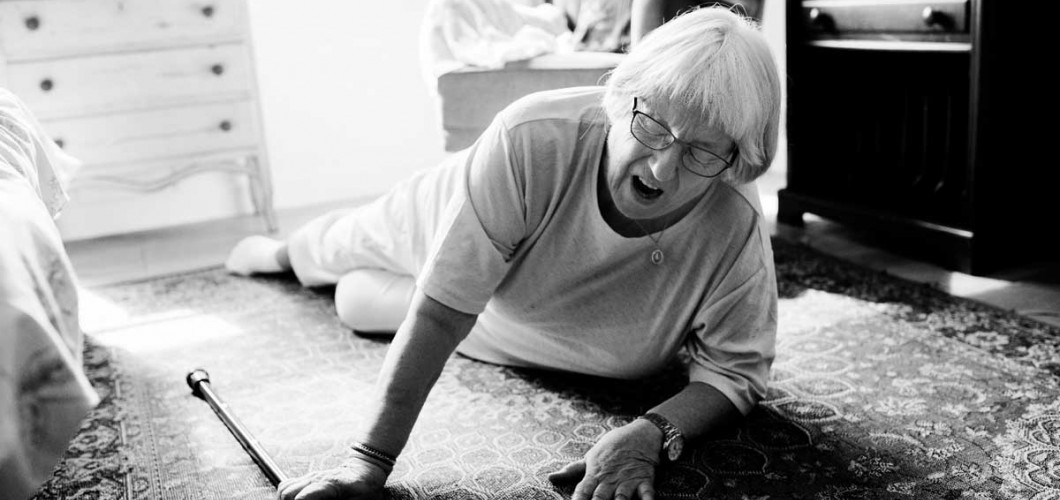
Aging is a natural process that brings changes to various systems in the body. These changes can affect the health of older adults and make it more challenging for them to cope with emergencies. The elderly are more vulnerable than younger individuals, making it crucial to intervene with appropriate first aid. In this article, we will discuss the key considerations when providing first aid to the elderly, common health issues they face, and how to intervene correctly during emergencies.
Common Health Issues and First Aid Needs in the Elderly
The health of older adults is generally more fragile due to genetic factors, lifestyle, chronic illnesses, and environmental factors. This increases the likelihood of emergencies and the need for first aid. Some of the most common health problems in the elderly include:
1. Falls and Fractures
With aging comes loss of balance, muscle, and bone weakness, which increases the risk of falls. Falls can often lead to fractures, sprains, and severe injuries in older adults.
First Aid Application:
- In the event of a fall, check for pain and swelling before moving the person.
- If there is a serious injury, do not move the person and call emergency services.
- If you suspect a fracture or dislocation, avoid moving the person and wait for professional help.
2. Heart Attacks
Older adults are more likely to experience heart attacks as they age. Symptoms such as chest pain, shortness of breath, and sweating can indicate a heart attack.
First Aid Application:
- If heart attack symptoms are suspected, immediately call for emergency help.
- Remain calm and reassure the elderly person, allowing them to rest.
- If the person loses consciousness, CPR (cardiopulmonary resuscitation) may be necessary.
3. Stroke
Stroke occurs when blood flow to the brain is interrupted, and it is more common in older adults. Symptoms of a stroke include facial asymmetry, weakness in the arms or legs, and difficulty speaking.
First Aid Application:
- If stroke symptoms are detected, immediately call emergency services.
- Lay the person down with their head slightly elevated.
- If stroke is suspected, avoid giving food or drinks to the person.
4. Respiratory Problems
Older adults often experience respiratory problems, such as asthma, COPD, and pneumonia, which can cause difficulty breathing.
First Aid Application:
- If the person is struggling to breathe, remain calm and help them relax.
- If the person is an asthma patient, assist them with using their medication.
- Call for emergency help and support the person by elevating their head.
5. Diabetes
Diabetes can cause irregular blood sugar levels in older adults. Hypoglycemia (low blood sugar) or hyperglycemia (high blood sugar) can occur.
First Aid Application:
- For hypoglycemia (symptoms include shaking, sweating, dizziness), provide the person with a sugary drink or snack.
- For hyperglycemia (symptoms include thirst and excessive urination), encourage the person to drink water and call emergency services.
Key Considerations When Providing First Aid to the Elderly
When providing first aid to the elderly, it is important to keep the following key factors in mind:
1. A Calm and Slow Approach
Older adults can be easily disturbed by sudden movements or panic. It is important to approach them with calmness and gentleness to help them feel at ease. Slow movements and avoiding unnecessary panic is critical.
2. Be Aware of Pain and Discomfort
Older adults may have difficulty expressing pain and discomfort. Therefore, it is important to observe body language and non-verbal cues carefully. Pain management and relaxation techniques can help support the recovery process.
3. Medication Use and Monitoring
Older adults often take medications regularly. It is important to consider the effects of these medications when providing first aid. Additionally, it is crucial to have knowledge of the person's medical history to ensure the correct intervention.
4. Communication and Information Sharing
When communicating with older adults, it is important to use clear and understandable language. Also, during first aid, it is necessary to inform other family members and health professionals about the situation.
Conclusion
First aid for the elderly is often a delicate process that requires attention and care. Due to their unique health needs, it is important to have specific knowledge and skills when intervening in emergencies. By respecting the health of older adults and applying the correct first aid techniques, we can ensure their safety and well-being. Remember, first aid can save lives.

Leave a Comment